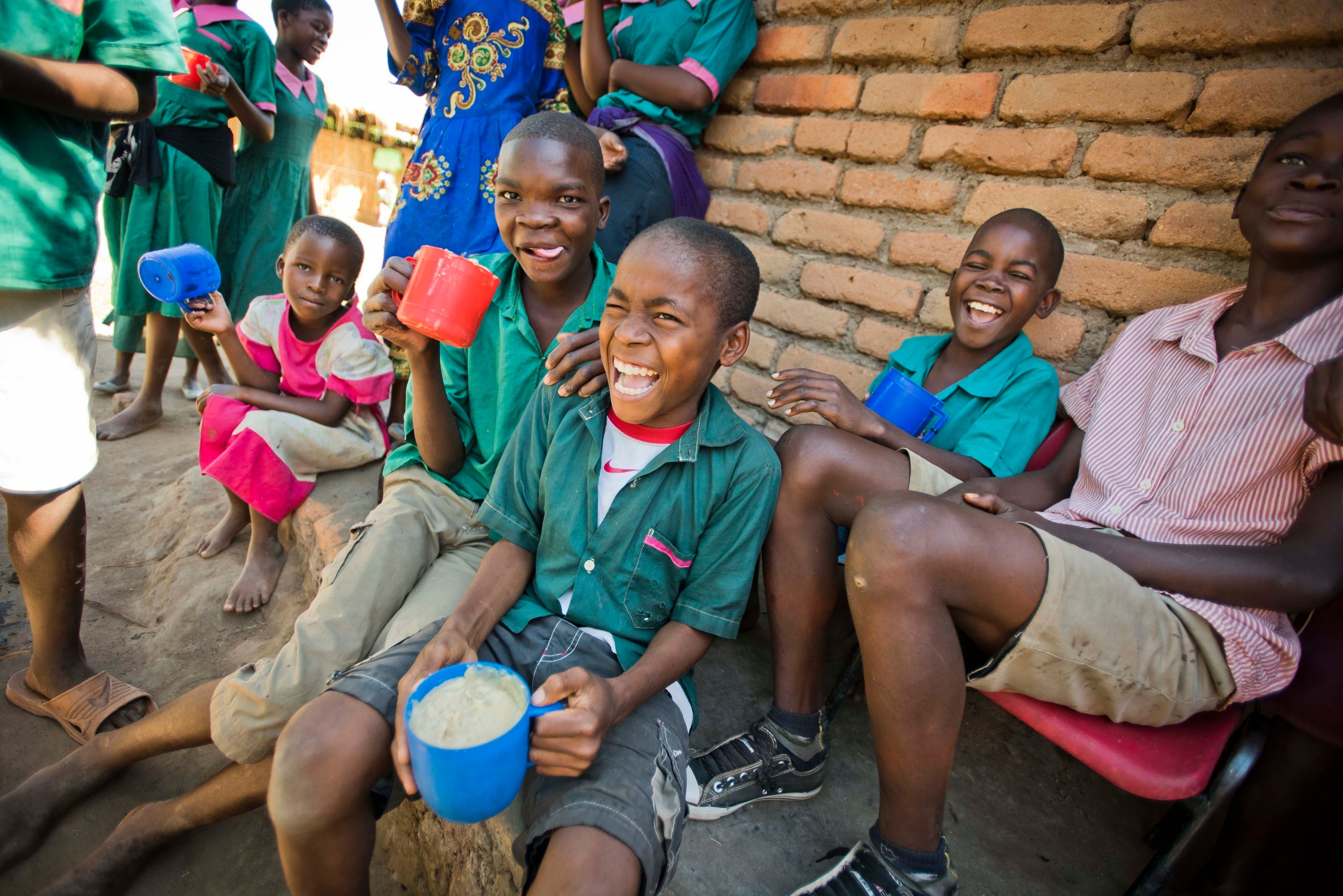We will never compromise on the education of African children
There continues to be a wide financial gap between what the developing world needs and what the rest of the world is prepared to give


Your support helps us to tell the story
From reproductive rights to climate change to Big Tech, The Independent is on the ground when the story is developing. Whether it's investigating the financials of Elon Musk's pro-Trump PAC or producing our latest documentary, 'The A Word', which shines a light on the American women fighting for reproductive rights, we know how important it is to parse out the facts from the messaging.
At such a critical moment in US history, we need reporters on the ground. Your donation allows us to keep sending journalists to speak to both sides of the story.
The Independent is trusted by Americans across the entire political spectrum. And unlike many other quality news outlets, we choose not to lock Americans out of our reporting and analysis with paywalls. We believe quality journalism should be available to everyone, paid for by those who can afford it.
Your support makes all the difference.Across the developing world, schools are in crisis. Education systems, many of which were under serious strain before the pandemic, have been dealt a devastating blow by Covid-19.
Responding to this crisis has been the principal goal of the Global Education Summit, which took place this week in London. This summit has come at a pivotal moment for the world, a moment at which immediate action is needed.
The World Bank estimates that in the past 18 months, more than 94 per cent of children have faced disruptions to their education. In much of sub-Saharan Africa and elsewhere in the developing world, learning has ground to a complete halt. Unable to replace schooling with remote education, millions of children have been left behind. The effects on learning have already been severe. The UN says that, globally, 100 million children have seen their reading proficiency fall below minimum standards as a direct result of Covid-19.
What is already a crisis could evolve into a catastrophe. Without serious action, the long-term impacts of the pandemic could have permanent effects on our children and by extension our future. For many children, pandemic-related disruptions will not be a blip on the radar, but the end of the road. The socioeconomic pressures that Covid-19 has inflicted on children will, tragically, force millions away from school and into an uncertain world, their chances of a bright future wrecked.
This is why I joined leaders from around the world in London this week for this vital summit: to fight tooth and nail for the dreams of Malawi’s children.
The financial support secured at this summit is an encouraging step forward, a vital starting point in the effort to ensure as many children as possible remain in education. The Global Partnership for Education’s five-year plan will have an immediate effect on “back-to-school” programmes in the developing world – targeting those children at the greatest risk. Increased provision aimed at the most deprived areas will ensure that millions of additional children will have the opportunity and the means to continue their full-time education.
These efforts will particularly focus on girls, who stand to suffer disproportionately from the current crisis. Over the past 50 years, significant strides have been taken towards a level educational playing field for girls around the world. In sub-Saharan Africa, for instance, mean schooling years for girls have almost tripled since 1970.
Covid risks rolling back this incredible progress. Away from the security and stability of schools, millions of girls are being forced into distress. According to Unicef, Covid-19 has directly caused a rise in child marriages; it estimates that, this year, more than 10 million girls are currently at risk. Millions more are set to fall pregnant, and violence against girls, including FGM, is on the rise again.
As leaders, we have a moral responsibility to these girls. Furthermore, the empowerment of women is vital for the future development of our country, our continent and our planet.
At this point in history, we are standing at a crossroads. The challenges presented to us by this pandemic have shed an alarming light on the flaws and inequities of our global education system. Our future is under threat. At the same time, this moment represents a unique opportunity for a new route forward. An opportunity to remodel our education systems, and to place children at the centre of our policymaking.
The right to education, the right to a better future for all boys and girls, is fundamental. The chaos inflicted by this pandemic has provided us with a sorely needed wake-up call, one that we must answer emphatically.
The Global Partnership for Education’s objectives are a promising response to this challenge. Its framework, which focuses on “accelerating access, learning outcomes, and gender equality”, is the starting point we need.
This week, the international community has set out a strong commitment to meeting these initial goals. But we need to go further. The pledges assured this week are still £716m ($1bn) short of what is needed.
In this financial climate, governments in developing countries cannot make the budgetary commitments necessary to lift their children out of this education crisis: we need to forge empowering partnerships with high-income nations and multilateral institutions. We cannot meet this challenge alone.
Beyond the Global Partnership for Education’s programme, there are yet more vital goals to pursue. Universities, for example, are a particular area of need. Last year, I was proud to be named as a champion for higher education in Africa. This reflects my strong beliefs that, in Malawi and elsewhere, we cannot neglect tertiary education. Doing so risks limiting the potential of our youth. We cannot cap the ambition of the leaders of tomorrow.
Another area where urgent support is perhaps most obviously needed is vaccination. This week, I have used my meetings with the British government in London to press for more support in the form of Covid-19 vaccines for Africa. Without further support, we cannot reopen schools at the pace we need.
Africa must be granted the rights to produce vaccines for Africans. Doing so is consistent with the values of equity and solidarity at the core of liberal societies. Investing in education will be fruitless if the endless cycle of lockdowns is not arrested by vaccinations in our countries. Vaccine nationalism is denying millions of children the right to an education.
There continues to be a wide financial gap between what the developing world needs and what the rest of the world is prepared to give. This gap has held back our recent progress, and has entrenched some of the inequalities and inefficiencies that the pandemic has revealed.
The time has come to close that gap and to make significant, long-term commitments to empowering the youth of the developing world. Doing so is not charity, but an investment – one that will pay dividends for the whole planet in the long term. Ignoring this challenge, on the other hand, could pave the way for a catastrophe that could stunt global development for years to come.
While I applaud and thank the Global Partnership for Education’s partners for their valuable contributions at this summit, my government and my partners across the developing world will continue to press for more support.
As Africans, we are often forced to compromise on many things in our bilateral and multilateral agreements with our development partners. On the matter of our children, however, we must stand firm. We cannot compromise on education. We must give it the investment it needs – there is no time left to waste.
Lazarus Chakwera is president of Malawi
To find out what others are saying and join the conversation scroll down for the comments section or click here for our most commented on articles
Join our commenting forum
Join thought-provoking conversations, follow other Independent readers and see their replies
Comments